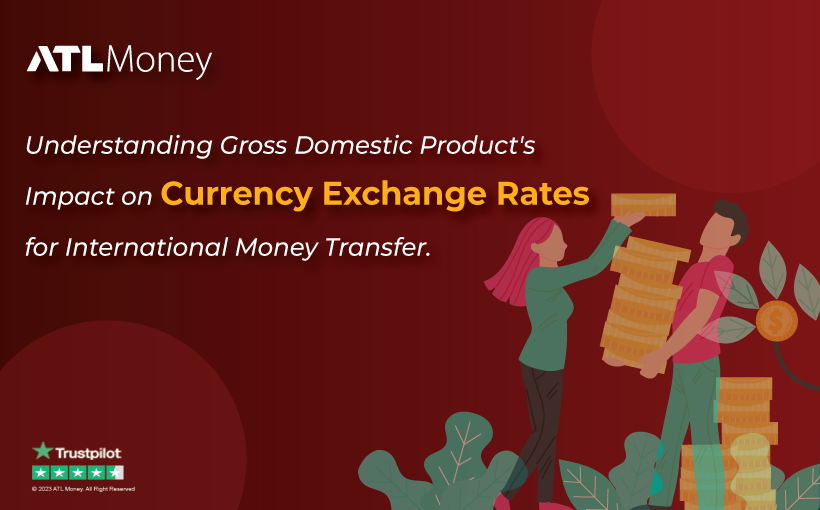In the world of international money remittance, Gross Domestic Product, commonly known as GDP, is a critical factor in determining the currency exchange rate of a country.
It is a critical economic indicator that represents the total market value of goods and services produced within a country in a specific period.
The GDP reflects the economic health of a country, which is crucial when making decisions on international money transfers. But before I take you far, let’s define GDP…
How GDP Impacts Currency Exchange Rates
Gross Domestic Product, (GDP) is a measure of the total value of goods and services produced within a country’s borders in a given period. It is used to measure the size and health of an economy. GDP affects currency exchange rates because it is a measure of the relative strength of an economy.
When a country’s GDP is strong, its currency will usually be in demand, which will cause its exchange rate to increase. Conversely, when a country’s GDP is weak, its currency will usually be less in demand, which will cause its exchange rate to decrease.
NOW, ITS IMPACTS ON EXCHANGE RATES
One of the essential ways in which GDP affects currency exchange rates is by reflecting the economic health of the country. Countries with high GDPs are considered economically stable, and their currency exchange rates are usually strong.
This means that the demand for their currency increases, increasing its value against other currencies. On the other hand, countries with a low GDP are seen as economically unstable, and their currency exchange rates are generally weaker, which ultimately affects money transfers.
Interest rates are another factor that impacts currency exchange rates. Central banks of countries with high GDPs usually set high-interest rates, which makes their currency more attractive to foreign investors.
This increased demand for the currency also causes an increase in its value, leading to currency appreciation. Conversely, countries with low GDP usually set low-interest rates, making their currency less attractive to foreign investors, leading to their currency depreciation.
Importance of International Money Transfer Platforms
International money transfer platforms facilitate the transfer of money from one country to another, and their customers should understand the effects of different economic indicators such as GDP on currency exchange rates.
Using a reputable international money transfer platform like ATLMoney to send money from the UK to Zimbabwe and other countries is an excellent way to mitigate the adverse effects of these economic indicators on currency exchange rates.
ATLMoney is a trusted platform that offers reliable, fast, and secure international money transfer services at competitive exchange rates.
Conclusion
In conclusion, GDP is a critical consideration for anybody involved in the global money transfer industry since it determines how much money may be sent internationally. Making educated judgments about when to transfer money and how much to send requires an understanding of how GDP affects currency exchange rates.
These impacts may be managed and the seamless movement of money across borders ensured by using a reputable international money transfer platform like ATLMoney.
